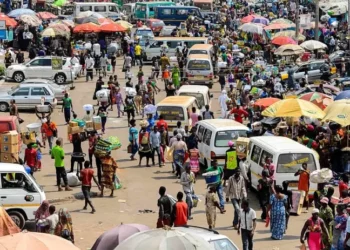Ghana, like many developing nations, stands at a crucial juncture in addressing climate change and energy transition challenges. The nation’s political response to climate and energy issues is shaped by the policies put forth by its leading parties—the New Patriotic Party (NPP), National Democratic Congress (NDC), and the recently emerged Movement for Change.
With Ghana’s 2024 general elections on the horizon, examining these manifestos reveals each party’s commitment to sustainable energy solutions, environmental protection, and economic growth.
In a landmark event focused on scrutinizing Ghana’s political climate and energy policies, the IMANI Centre for Policy and Education conducted an in-depth analysis of the manifestos of the nation’s three primary political parties. Dennis Asare, Senior Research Associate at IMANI, highlighted key findings at the event, drawing attention to the promises and approaches outlined in each manifesto.
According to Asare, “the commitment of each party to sustainable growth and climate resilience is evident, though they propose distinct strategies to tackle these pressing issues.”
New Patriotic Party (NPP): Supporting Green Businesses and Innovative Financing
In its manifesto, the NPP emphasizes the need to support green businesses through various incentives, intending to promote sustainable practices across sectors.
Dennis Asare commented on this policy, noting that while the NPP’s intentions are promising, the lack of specifics around the incentives leaves certain gaps.
“What the New Patriotic Party (NPP) wants to do is that they want to support green businesses, but they don’t specify the specific incentives.”
Dennis Asare, Senior Research Associate at IMANI
However, the NPP manifesto does mention introducing tax breaks for green technology products, a move that could foster greater adoption of environmentally friendly technologies.
IMANI’s analysis shed light on the varied approaches to climate policy and energy transition among the three parties.
The NPP’s focus on supporting green businesses and exploring climate financing mechanisms speaks to an economically driven approach that could attract private sector investment in sustainability.
However, without concrete incentives, as highlighted by Dennis Asare, the effectiveness of these policies remains uncertain.
National Democratic Congress (NDC): Codifying Climate Action in Law

The NDC’s manifesto brings a significant shift in the discourse on climate change policy in Ghana by proposing the enactment of a National Climate Change Law.
As Dennis Asare pointed out, this legislative approach could greatly enhance accountability and policy coherence, as current efforts by climate institutions are largely governed by non-binding Memoranda of Understanding (MOUs).
With a national climate change law, Ghana would have a legally binding framework to monitor, evaluate, and ensure the enforcement of its climate commitments.
“In order to ensure that our [Nationally Determined Contributions] NDCs are codified in law, we need a national climate change law, and we think that was very, very useful.”
Dennis Asare, Senior Research Associate at IMANI
The NDC’s legislative approach through a proposed National Climate Change Law addresses the need for legal accountability. This strategy would align with global climate commitments and secure Ghana’s Nationally Determined Contributions (NDCs) under the Paris Agreement.
The law could also enable more systematic monitoring and evaluation of climate initiatives, ensuring that climate resilience efforts are both measurable and sustained over time.
Movement for Change: Revamping the Environmental Protection Agency (EPA)
The Movement for Change (MfC) takes a unique stance on environmental governance by targeting institutional reforms. Its manifesto pledges to undertake a comprehensive review of the Environmental Protection Agency (EPA) to identify gaps in its mandate and operational capacity.
The party’s proposal to transform the EPA into an independent regulatory authority with enhanced powers and autonomy reflects its commitment to strengthening environmental oversight.
This proposed restructuring under a new Act of Parliament aims to equip the EPA with the authority needed to enforce environmental regulations and coordinate cross-sectoral activities crucial for climate action.
Each party’s manifesto reveals a distinct pathway for addressing Ghana’s climate challenges. The NPP’s focus on incentivizing green businesses and exploring innovative financing can attract investment, while the NDC’s proposal for a national climate law provides a framework for accountability and policy consistency. Meanwhile, the Movement for Change’s push for a stronger EPA could lead to a more effective regulatory landscape.
As Ghana approaches its 2024 elections, IMANI’s analysis at the IMANIFesto event underscores the importance of clear, enforceable policies for sustainable development. Whichever party comes to power will need to prioritize climate resilience, not only to safeguard the environment but also to foster a sustainable future for all Ghanaians.
READ ALSO: IMANI Analysis Unveils Vague Political Parties’ Promises























